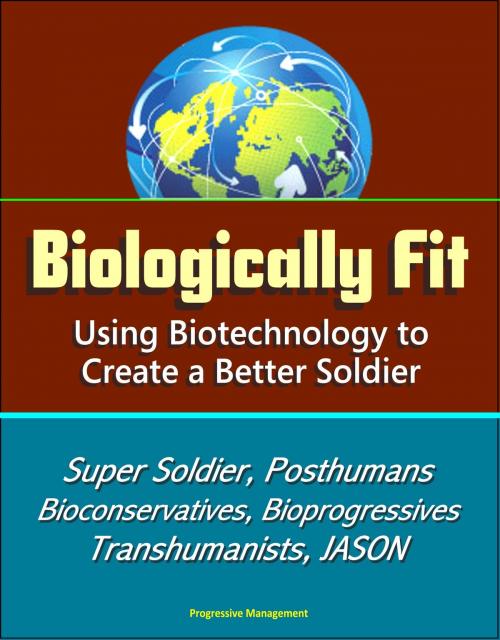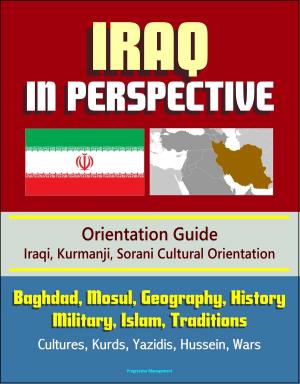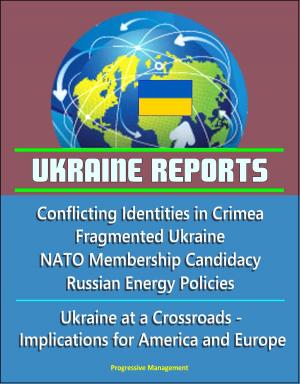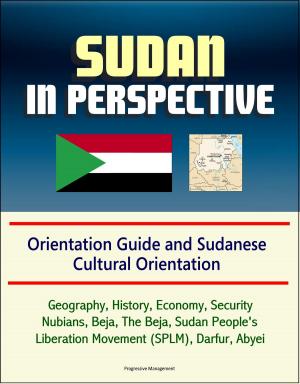Biologically Fit: Using Biotechnology to Create a Better Soldier - Super Soldier, Posthumans, Bioconservatives, Bioprogressives, Transhumanists, JASON
Nonfiction, History, Military, Weapons| Author: | Progressive Management | ISBN: | 9781311845580 |
| Publisher: | Progressive Management | Publication: | July 9, 2014 |
| Imprint: | Smashwords Edition | Language: | English |
| Author: | Progressive Management |
| ISBN: | 9781311845580 |
| Publisher: | Progressive Management |
| Publication: | July 9, 2014 |
| Imprint: | Smashwords Edition |
| Language: | English |
Biotechnology plays a critical role in treating war injuries, preventing and diagnosing disease, and protecting the force against exposure to harmful agents. While effective in its ability to provide medical intervention, biotechnology's non-medical side reveals opportunity to create a "super human" soldier who is more effective in combat and equipped to survive the rigors of war. Scientists in the field have proposed ideas on how to neurologically and physically enhance soldiers at the genetic level. These developments may help build soldier resistance to battle fatigue, increase endurance, and enhance intelligence making soldiers more decisive on the battlefield. Creating soldier that are stronger, faster and able to counter unpredictable enemy tactics will increase the military's ability to adapt to changing battlefield conditions and conduct major operations using a smaller force. This thesis examines performance and cognitive enhancement of the soldier via genetic engineering and its potential ability to arm the military with the capabilities to maintain rapid deployment cycles despite the reduction in force and fight wars using sophisticated techniques in order to reduce casualty rates. Understanding the ends and means of soldier enhancement and the novel ethical issues associated with genetic modification is critical to its future in military application.
CHAPTER I - INTRODUCTION * A. MAJOR RESEARCH QUESTION * B. IMPORTANCE * C. PROBLEMS AND HYPOTHESIS * D. METHODS AND SOURCES * CHAPTER II - LITERATURE REVIEW * A. BIOTECHNOLOGY: HOW IT PROMISES TO ENHANCE NATURAL HUMAN ABILITIES * B. THE EMERGENCE OF BIOPOLITICS: THE BIOCONSERVATIVES, BIOPROGRESSIVES AND TRANSHUMANISTS * C. THE MILITARY PERSPECTIVE * D. CONCLUSION * CHAPTER III - ENHANCING THE FORCE: WHAT DOES IT MEAN AND WHY IS IT IMPORTANT * A. INTRODUCTION * B. WHAT DOES ENHANCEMENT MEAN? * C. CHANGING CONDITIONS DETERMINE THE NEED FOR ENHANCED CAPABILITIES * D. FORCE ENHANCEMENT: A HISTORICAL AND MODERN DAY PERSPECTIVE * E. BIOTECHNOLOGY: THE BREAKTHROUGHS AND DOWNSIDE OF GENETIC ENGINEERING * 1. Anti-Fatigue * 2. Enhancing Mental and Cognitive Function * 3. Physical Enhancement * 4. Immunity * 5. Pain Management * 6. Anti-aging * 7. Human Regenerative Healing * F. FEAR OF THE UNKNOWN * G. CONCLUSION * CHAPTER IV - CONCLUSION * A. POLICY IMPLICATIONS
Biotechnology plays a critical role in treating war injuries, preventing and diagnosing disease, and protecting the force against exposure to harmful agents. While effective in its ability to provide medical intervention, biotechnology's non-medical side reveals opportunity to create a "super human" soldier who is more effective in combat and equipped to survive the rigors of war. Scientists in the field have proposed ideas on how to neurologically and physically enhance soldiers at the genetic level. These developments may help build soldier resistance to battle fatigue, increase endurance, and enhance intelligence making soldiers more decisive on the battlefield. Creating soldier that are stronger, faster and able to counter unpredictable enemy tactics will increase the military's ability to adapt to changing battlefield conditions and conduct major operations using a smaller force. This thesis examines performance and cognitive enhancement of the soldier via genetic engineering and its potential ability to arm the military with the capabilities to maintain rapid deployment cycles despite the reduction in force and fight wars using sophisticated techniques in order to reduce casualty rates. Understanding the ends and means of soldier enhancement and the novel ethical issues associated with genetic modification is critical to its future in military application.
CHAPTER I - INTRODUCTION * A. MAJOR RESEARCH QUESTION * B. IMPORTANCE * C. PROBLEMS AND HYPOTHESIS * D. METHODS AND SOURCES * CHAPTER II - LITERATURE REVIEW * A. BIOTECHNOLOGY: HOW IT PROMISES TO ENHANCE NATURAL HUMAN ABILITIES * B. THE EMERGENCE OF BIOPOLITICS: THE BIOCONSERVATIVES, BIOPROGRESSIVES AND TRANSHUMANISTS * C. THE MILITARY PERSPECTIVE * D. CONCLUSION * CHAPTER III - ENHANCING THE FORCE: WHAT DOES IT MEAN AND WHY IS IT IMPORTANT * A. INTRODUCTION * B. WHAT DOES ENHANCEMENT MEAN? * C. CHANGING CONDITIONS DETERMINE THE NEED FOR ENHANCED CAPABILITIES * D. FORCE ENHANCEMENT: A HISTORICAL AND MODERN DAY PERSPECTIVE * E. BIOTECHNOLOGY: THE BREAKTHROUGHS AND DOWNSIDE OF GENETIC ENGINEERING * 1. Anti-Fatigue * 2. Enhancing Mental and Cognitive Function * 3. Physical Enhancement * 4. Immunity * 5. Pain Management * 6. Anti-aging * 7. Human Regenerative Healing * F. FEAR OF THE UNKNOWN * G. CONCLUSION * CHAPTER IV - CONCLUSION * A. POLICY IMPLICATIONS















